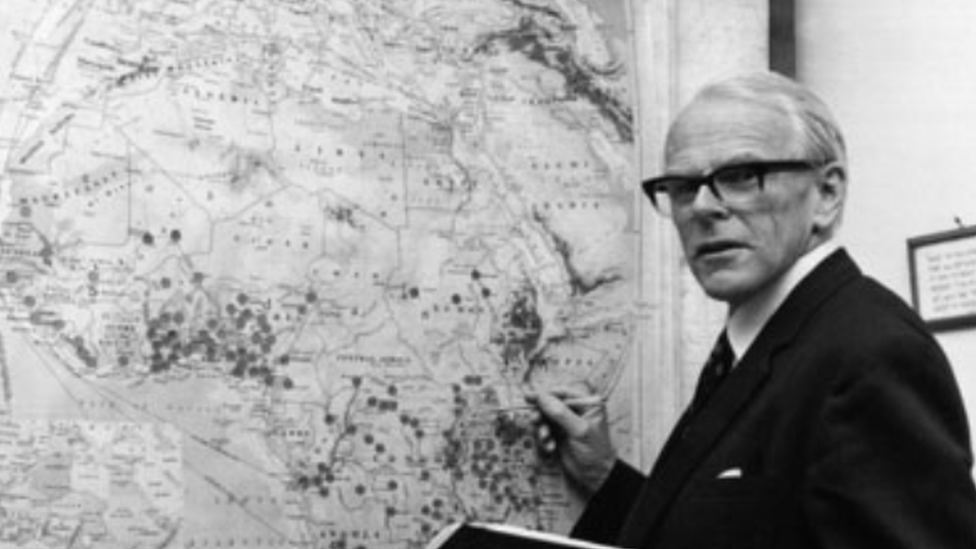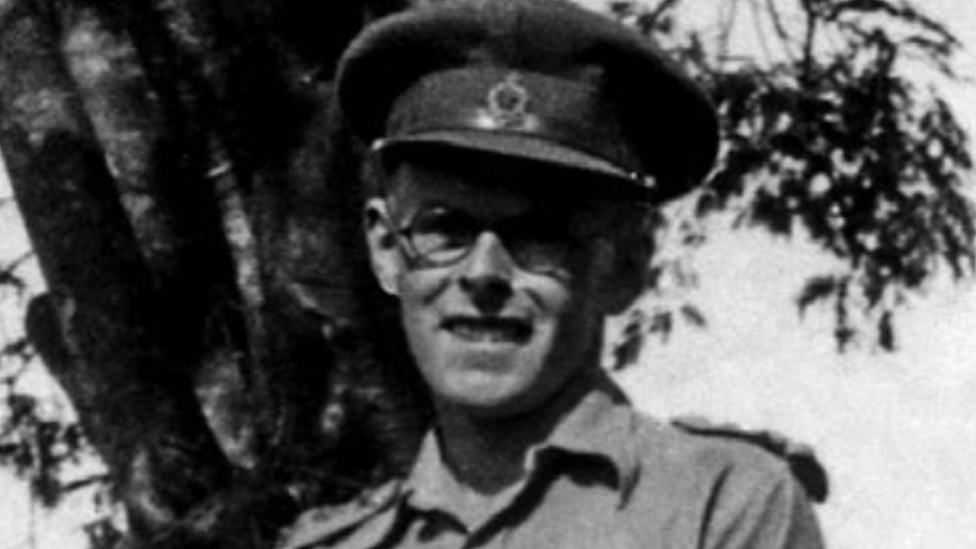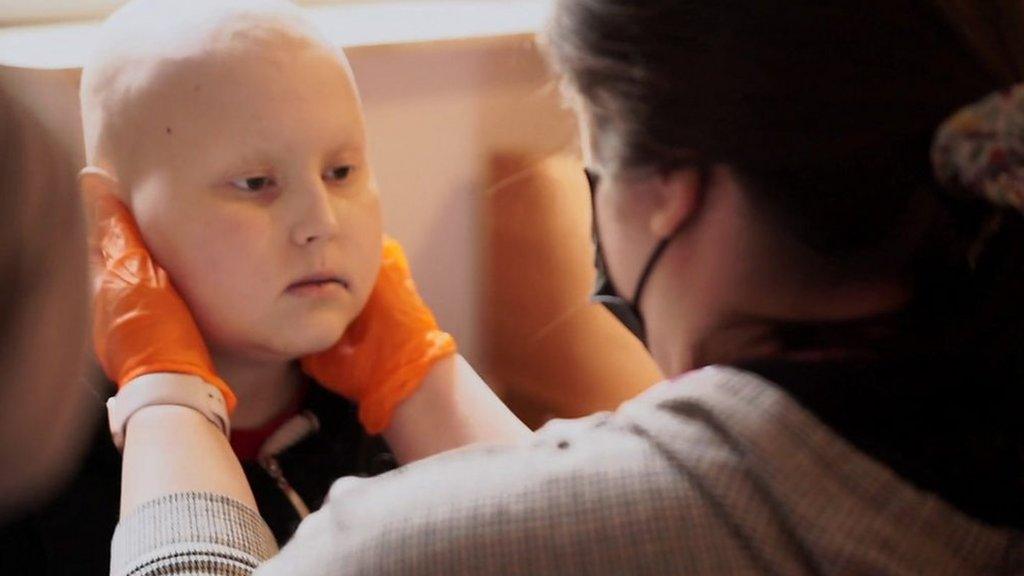Dr Denis Burkitt: Fermanagh's tribute to 'superstar' cancer pioneer
- Published

Dr Denis Burkitt was a pioneer of cancer treatment
County Fermanagh is paying tribute to a distinguished medical research scientist this weekend.
Dr Denis Burkitt was born in Enniskillen in 1911 and went on to make make major advances in cancer research.
On Saturday, a plaque is to be unveiled at his childhood home at Alexandra Terrace in the town.
Dr Burkitt is remembered for his research on a childhood cancer, now known as Burkitt's lymphoma, and on the importance of dietary fibre for the avoidance of colorectal cancer.
'Unparalleled'
Child cancer specialist Prof Owen Smith from Trinity College Dublin (TCD) said Dr Burkitt was one of his heroes.
"What he did in Africa in the 1950s and the 1960s is unparalleled by any other individual in cancer medicine," Prof Smith said.
"He's an absolute household name in the medical profession."
Dr Burkitt attended Portora Royal School in Enniskillen. He signed up to study engineering at TCD but transferred to the medical school to follow a Christian calling to become a doctor.
Saturday's event is being led by David McNulty from the Fermanagh Genealogy Centre, a charity that helps people trace their ancestry in the county.

The plaque will be on Denis Burkitt's childhood home
He explained why he felt it was important that Dr Burkitt should be recognised:
"He's so well-known around the world for his seminal works, but not in Fermanagh itself. I said 'let's do something', but it took three years because of Covid," he said.
The unveiling of the plaque coincides with the publication of a new biography of the medical pioneer by Prof John Cummings of Dundee University.

Dr Burkitt served in the Royal Army Medical Corps
Dr Burkitt served with the Royal Army Medical Corps in east Africa during World War Two, which led him to continue his medical work in Uganda after the conflict.
In 1957, he was asked to examine a boy named Africa, who had tumours in his jaw.
This examination led to a long process of research, including hundreds of miles of travel around central Africa, which led to the identification of Burkitt's lymphoma.
Prof Smith explained that one of Burkitt's great discoveries was that the lymphoma was driven by a viral infection.
He also persuaded pharmaceutical companies to provide chemotherapy dugs for free, and developed new treatments suited to the living conditions of people in sub-Saharan Africa.

Denis Burkitt published his guide to a healthy diet in 1979
Dr Burkitt and his wife, Olive, returned to the UK in the early 1960s where he began work on colorectal cancer and the importance of including fibre in the diet.
From his time in Africa he concluded that many diseases experienced in western countries were the result of diet and lifestyle.
In 1979, the veteran researcher published a book, Don't Forget Fibre in your Diet. This was aimed at the general public rather than the specialist scientific community and became a bestseller.
Prof Smith explained that Dr Burkitt's research into lymphoma and colorectal cancer resulted in two "citation classics" in separate fields of medical research, an incredibly rare achievement for any one person
Dr Burkitt, who died in 1993, received many international awards during his lifetime, was made a Companion of the Order of St Michael and St George (CMG), a Fellow of the Royal Society and was awarded the the British Medical Association's Gold Medal.
Related topics
- Published7 March 2022
